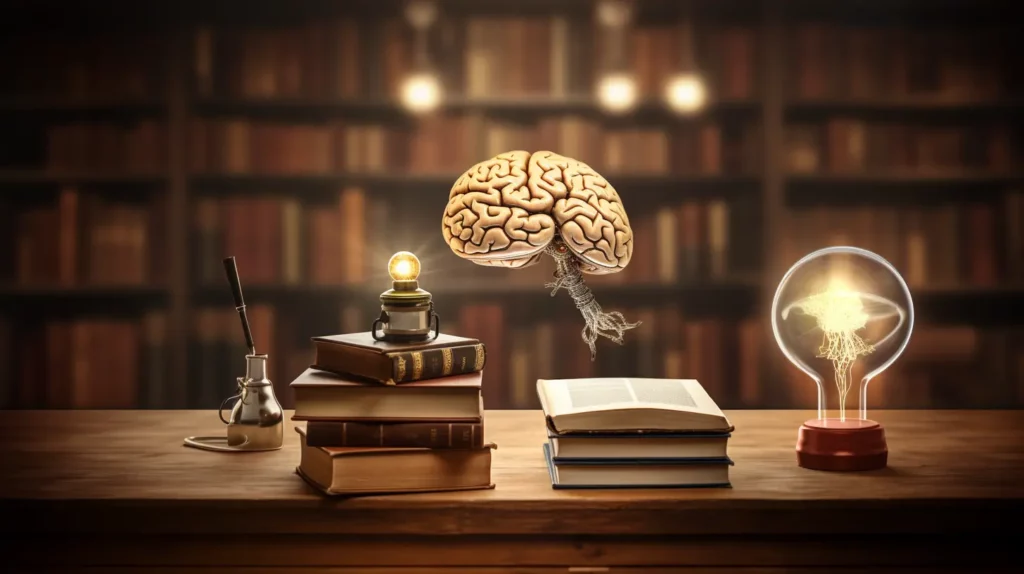Generally, someone who is book smart has intelligence, demonstrated by their academic knowledge and education. Intelligence has been understood as having the capacity for logic, understanding, self-awareness, learning, emotional knowledge, planning, creativity, and problem-solving. For many people, there is no distinction between the terms smart and intelligent, as they are seen to be synonymous.
What is Book smart person and what is an intelligent person
A book-smart person is someone who has a deep understanding of academic concepts and knowledge, typically gained through education. This knowledge often comes from reading and studying topics found in books, although it can also come from other educational sources such as lectures, courses, and seminars.
Book-smart individuals are considered to be intelligent, they are thought to possess the capacity for logic, understanding, self-awareness, learning, emotional knowledge, planning, creativity, and problem-solving. This intelligence drives their thirst for knowledge which helps them better understand the world around them. Book-smart people may or may not have street smarts. Street smarts refer to the type of practical wisdom someone needs to navigate the complexities of life outside of an academic environment. Typically, this includes a strong sense of intuition when dealing with people and situations in the real world.
Here are 10 indicators of book-smart people
- They are able to recall facts quickly and accurately.
- They have a deep knowledge of topics, which enables them to find new solutions to problems.
- They have an aptitude for logic and problem-solving.
- They can identify patterns, spot trends, and make connections across disciplines.
- They have a strong memory for details and can recall information easily.
- They have a strong grasp of language usage, grammar rules, and principles of communication.
- They are able to analyze data and draw conclusions from it.
- They possess the ability to focus on a task for long periods of time as well as multitask effectively.
- They strive to constantly increase their knowledge base by actively seeking out new sources of information and staying informed on current events.
- They demonstrate strong abilities in communication with the capacity to think abstractly, reason critically, solves problems logically, and communicate persuasively written or orally.
Generally, an intelligent person is someone who has the capacity to think abstractly, reason analytically, comprehend complex ideas, and acquire knowledge. This intelligence helps them carry out tasks such as problem-solving, understanding relationships between different things, and making decisions. Intelligence is often thought of as synonymous with book smarts, however, this form of intelligence is only related to academic knowledge and learning. While intelligence may be acquired from a book, it can also be gained from other sources such as life experiences or conversations with others.
In addition to being book smart, intelligent people are often seen as street smart too, possessing intuition when dealing with the complexities of real-world situations and having a better understanding of human behavior. Intelligent people understand how to interact effectively in society and make wise decisions about their own lives.
High IQ isn’t always related to education. One can be intelligent even if their education scores say otherwise
There are various types of intelligence
Academic Intelligence – Academic intelligence involves having a deep understanding of academic concepts and knowledge, typically gained through education.
Creative Intelligence – Creative intelligence is represented by the ability to come up with new and imaginative ideas, often in an artistic or musical form.
Logical Intelligence – Logical intelligence is the ability to think logically and reason analytically in order to solve problems or make decisions.
Social Intelligence – Social intelligence constitutes the capacity to interact effectively with others. It requires understanding how people behave and being able to cooperate with them accordingly.
Spatial Intelligence – Spatial intelligence describes the ability to interpret and manipulate two-dimensional visual images such as maps or diagrams. It is also commonly referred to as “visual-spatial” intelligence.
Musical Intelligence – Musical intelligence enables an individual to recognize musical patterns not just for creating music but for appreciating it as well.
Linguistic/Verbal Intelligence – Verbal/linguistic intelligence is often referred to as “word smarts”, which involves strong verbal communication skills and sensitivity towards nuances of language. This type of intelligence is strongly correlated with reading comprehension, writing, and communication skills in general.
Kinesthetic/Body Smart – Kinesthetic/body smarts involve learning best through physical activities like touching or practice rather than discussion or lectures alone, making connections between body movements and cognitive thinking.
Interpersonal / People Smarts– Interpersonal / people smarts refer to an individual’s ability to understand others, their motivations, perspectives, feelings, etc. It means understanding different points of view & recognizing when someone needs help.
Intra Personal / Self-Awareness “Smart” – Intra personal / self-awareness smarts include understanding one’s self and being aware of the needs, desires & feelings. Being able to identify when something isn’t right & seeking help if required.
Naturalist / Nature Smart – Naturalist/nature smarts involve identifying plant species & natural elements within the environment. Understanding the principles of ecology & biology can be beneficial too
How to become intelligent
To become more intelligent, it is important to engage in activities that challenge and stimulate your mind. This could include reading, studying, playing strategy games, or exploring unfamiliar topics. Regular practice and persistence will help build intelligence over time.
How to become book smart
Becoming book-smart requires disciplined study and a willingness to learn. Dedicating time to studying complex topics, taking on research projects, or reading widely will help increase knowledge and understanding of certain areas.
What are the key differences between a book-smart and an intelligent person?
It can be difficult to distinguish between someone who is book-smart and someone who is truly intelligent. Book-smart individuals may have a high level of factual knowledge, but lack the ability to think critically or make meaningful connections between different ideas. They may be able to memorize facts and regurgitate them without any true understanding of the concepts. In addition, book-smart people tend to lack emotional intelligence and are not as sensitive to subtle cues or other people’s perspectives.
Intelligence takes many forms. One of the key indicators of true intelligence is a person’s ability to think critically and outside the box. A truly intelligent person will have a deep understanding of the subject matter and they will be able to make connections between disparate ideas. They will also possess a level of emotional intelligence that allows them to pick up on subtleties in conversations, empathize with others, and take into account different viewpoints when making decisions.
Ultimately
it is up to each individual’s discretion to decide what knowledge is worth knowing and how best to use our own intelligence. Of course, hands-on experience can give us a unique perspective on the world, but we must not forget the wisdom of those who have come before us, hidden within the pages of books they left behind.







